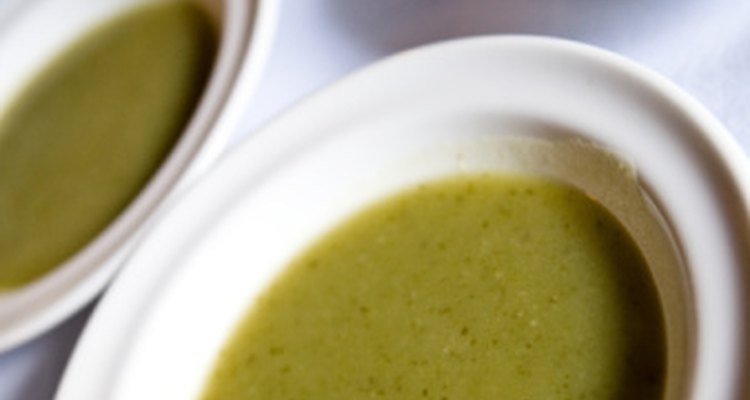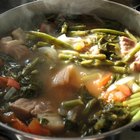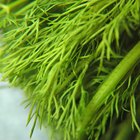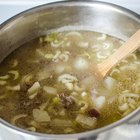
Are you fed up with eating bland packet soups? Soups don’t need to be boring; make your own and add flavor by mixing and matching spices according to the ingredients you’re using. As soup is a popular winter food, it makes sense to use the spices that contain the most nutrients. The best spices to use in soups are usually the ones with the strongest flavors, such as cumin, paprika, black pepper and cinnamon.
Vegetable Soup
Add the spices you would typically use in a curry, such as turmeric, curry powder, cumin and cayenne pepper. These spices are great pairings for lentil and chickpea soups, or for soups with chunky vegetables, like potatoes, cauliflower and carrots, particularly if they have a clear broth. Curcumin, one of the components of turmeric, is an anti-inflammatory and natural painkiller.
Noodle Soup
Add a twist to classic Italian minestrone soup by sprinkling a little nutmeg and cinnamon over the top. Any pasta- or noodle-based soup will go well with these spices, but use the cinnamon sparingly as too much will cause the soup to turn bitter. Cinnamon can improve cholesterol levels, particularly among people suffering from diabetes.
Tomato Soup
Tomato soups are often at risk of tasting plain, but they don’t have to be if you add paprika, cayenne pepper and/or turmeric. Paprika contains capsaicin, which is an anti-inflammatory ingredient perfect for wintertime prevention of colds and flu. Cinnamon and nutmeg also go well with the slight sweetness of tomato.
Meat Soup
Soups with meat benefit from paprika, turmeric, nutmeg, curry powder and cayenne pepper as well as saffron and cardamom. Saffron will combine particularly well with chicken and pork. Additionally, it is an important component of the French fish soup bouillabaisse. Use sparingly; a little goes a long way. Saffron contains antioxidants, which help to keep the immune system healthy. Cardamom can be used in equally small amounts to flavor beef soups. It is also high in antioxidants.
Black Pepper
Black pepper is so versatile it can be added to all soups. Grind fresh black pepper into the soup or, for extra spice, add whole black peppercorns. If you’re making a pale-colored soup, like onion or potato soup, for instance, you might want to use white pepper. Black pepper has antibacterial properties and can help to bring down a fever, making it another useful spice for winter.
Related Articles
What Kind of Seasoning Do You Put in ...

What Are the Health Benefits of Pico De ...

Afghan Spices

How to Make Celery Soup

How to Make Sinigang

How to Use Eggplant in Soup

How to Make Chicken Noodle Soup Without ...

How to Neutralize Food Seasoned With ...

How to Cook Stew in a Slow Cooker

The Uses of Dry Mustard

Herbs & Spices in Lentil Soup

What Foods Can I Put Fresh Ginger On?

How Many Calories Are in a Stuffed Bell ...

How to Make Pho Soup

Bean Soup Diet

Classic Russian Spices

How to Fix Lipton Onion Soup

Nigerian Herbs & Spices

Do You Have to Cook Ramps or Can You ...

How to Make Potato Hamburger Soup
References
Photo Credits
Jupiterimages/Photos.com/Getty Images